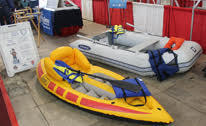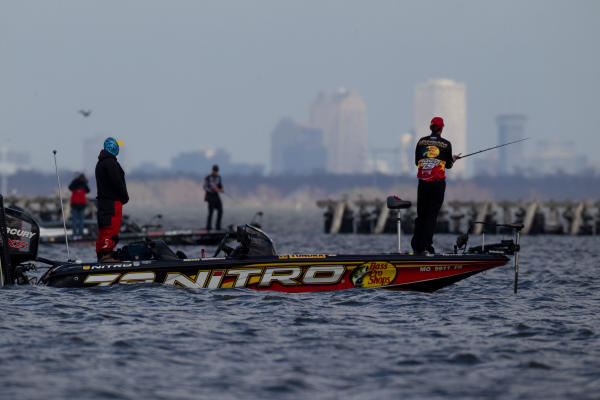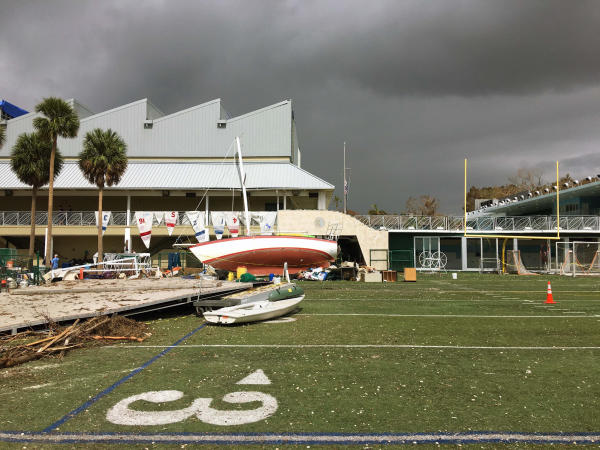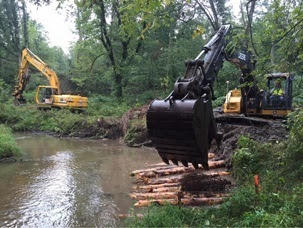A 12-foot boat that folds. A paddleboard in a backpack. A kayak that blows up like a balloon. These folding and inflatable vessels are attracting attention as the Inflate-A-Fleet that is the centerpiece of the 2018 New York Sea Grant Discover Clean and Safe Boating campaign.
“These unique floating vessels are considered boats and are subject to applicable boating laws and standards,” says Dave White, a Great Lakes coastal recreation and tourism specialist with New York Sea Grant, Oswego, NY. “Every year we select a different style of boat to educate the public about how to be safe, in compliance with boating law, and environmentally-friendly on the water, and the Inflate-A-Fleet is doing that in 2018.”
With a Get Out on the Water: Everyone Can Enjoy Boating theme, the new traveling exhibit will visit boat shows, marinas and events to show how easily people, particularly the younger generation, can get involved in boating.
“As more and more people learn about the fabulous boating resources in New York State, it becomes increasingly more important to educate people of all ages about the best practices for safe, legal, and clean boating. New York Sea Grant is perfectly positioned to extend those practices to the public in both the Great Lakes and marine districts,” comments Katherine Bunting-Howarth, associate director of New York Sea Grant and assistant director of Cornell Cooperative Extension, Ithaca, NY.
The exhibit that made its debut at a New York City waterfront festival last fall includes signage noting all the gear required and recommended for boaters to be legal, safe and environmentally-friendly on New York State waters. That gear includes such items as life vests and reflective decals for paddles.
New York Sea Grant has received New York State, National Association of Boating Law Administrators, and U.S. Coast Guard Auxiliary awards for the Discover Clean and Safe Boating campaign. The program has educated more than one million people, including deaf boaters, emergency services first responders, anglers, sailors, and paddle sport enthusiasts, since its inception in 2008.
New York Sea Grant partners in the Discover Clean and Safe Boating campaign include the Boating Industries Association of Upstate NY, U.S. Coast Guard Auxiliary, New York State Marine Services Bureau, and marine industry businesses.
New York Sea Grant is a cooperative program of Cornell University and the State University of New York, and one of 33 university-based programs under the National Sea Grant College Program of the National Oceanic and Atmospheric Administration. For updates on New York Sea Grant activities statewide, www.nyseagrant.org has RSS, Facebook, Twitter, and YouTube links.
PHOTOS Available in High Res:
New York Sea Grant Great Lakes Recreation and Tourism Specialist Dave White in the folding boat that is part of the 2018 Discover Clean and Safe Boating Inflate-A-Fleet educational exhibit. Photo: Brian P. Whattam
These inflatable watercraft are part of the New York Sea Grant 2018 Discover Clean and Safe Boating Inflate-A-Fleet educational exhibit. Photo: Brian P. Whattam
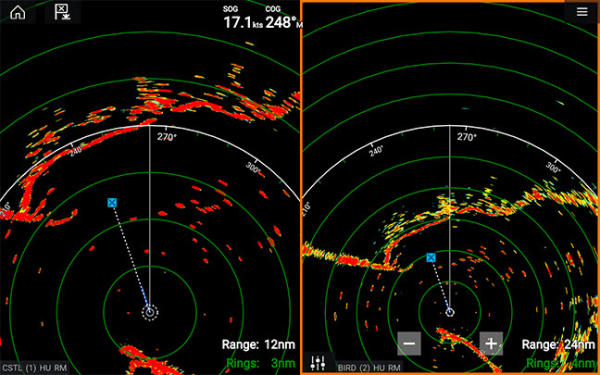


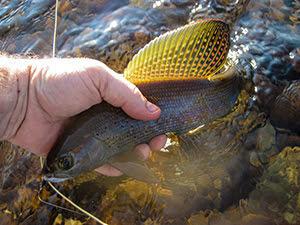

 As this year’s open-water fishing season gets under way, anglers trying their luck on Michigan lakes, rivers and Great Lakes ports can expect to see Department of Natural Resources fisheries staff out and about collecting key data about those experiences.
As this year’s open-water fishing season gets under way, anglers trying their luck on Michigan lakes, rivers and Great Lakes ports can expect to see Department of Natural Resources fisheries staff out and about collecting key data about those experiences.
